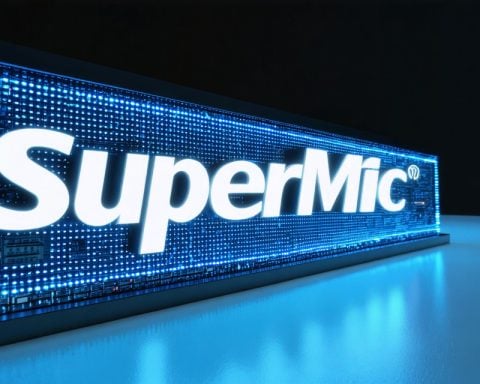Nokia Takes a Strategic Step in Share Repurchase
In an ambitious initiative, Nokia has launched a buyback program aimed at acquiring as many as 150 million of its own shares, with a maximum budget of €900 million. This program, which began on November 25, 2024, was sanctioned earlier this year during the company’s Annual General Meeting held on April 3, 2024.
Scheduled to wrap up by the end of 2025, this effort follows a series of transactions that resulted in Nokia holding approximately 230 million shares. The initiative is designed in compliance with the EU Market Abuse Regulation, ensuring that all actions are in line with established guidelines.
This share repurchase is not merely a financial maneuver; it’s part of Nokia’s broader strategy to refine its capital structure while simultaneously delivering value back to its shareholders. The company is sharply focused on advancing its position in Business-to-Business technology, utilizing its significant capabilities in mobile, fixed, and cloud network solutions. This innovation strategy is further supported by the cutting-edge research and development conducted at the renowned Nokia Bell Labs.
For those interested, Nokia has provided detailed transaction records related to this buyback, which can be accessed upon request. The information regarding this program was revealed through an official press release from Nokia Oyj.
Examining the Broader Implications of Nokia’s Share Repurchase Program
Nokia’s recent announcement of a €900 million share repurchase program is not just a tactical financial decision; it resonates with significant implications for both the company and the larger global economy. By redirecting substantial funds towards repurchasing shares, Nokia is signaling confidence in its future prospects, which may bolster investor sentiment and enhance market stability in the technology sector, particularly within the wireless communications arena.
As Nokia aims to fortify its position in Business-to-Business technology, this initiative reflects a vital shift towards innovation-driven growth. A reinvigorated market presence could enhance competition within the telecommunications industry, fostering improvements in connectivity—crucial in an era where digital transformation is pivotal across sectors. This could catalyze not just corporate advancement but also societal progress, as increased technology adoption contributes to efficiency gains and enhances quality of life.
Moreover, share buyback programs can have environmental ramifications. By reducing the number of shares available in the market, companies like Nokia often can concentrate their resources, potentially prioritizing sustainable practices or cutting-edge research in renewable technologies. As firms weigh their corporate social responsibility alongside profitability, Nokia’s move may inspire other tech giants to similarly invest in sustainable practices that address the urgent call for environmental stewardship.
In the long run, Nokia’s strategic repositioning could model a trend towards greater accountability and resilience in the tech sector, highlighting the interplay between shareholder value and societal impact—a dynamic that stakeholders will continue to scrutinize as the global landscape evolves.
Nokia’s Bold Move: Share Buyback Program Aimed at Strengthening Capital Structure
Overview of Nokia’s Share Buyback Program
Nokia is making headlines with a strategic buyback initiative, aiming to acquire up to 150 million of its own shares for a maximum budget of €900 million. This program commenced on November 25, 2024, following approval at the company’s Annual General Meeting on April 3, 2024, and is expected to conclude by the end of 2025.
Purpose and Strategic Goals
This share repurchase effort goes beyond simple financial tactics; it plays a crucial role in Nokia’s broader strategy to optimize its capital structure. By executing this buyback, Nokia seeks to enhance shareholder value and solidify its position as a key player in the Business-to-Business (B2B) technology sector. The company’s well-established expertise across mobile, fixed, and cloud network solutions complements its innovation goals.
Innovations and Technological Advancements
Central to Nokia’s strategy is its continued investment in research and development, particularly through its cutting-edge Nokia Bell Labs. This center has been pivotal in driving innovations that equip Nokia to advance in high-demand technological areas, including 5G and IoT (Internet of Things) solutions.
Regulatory Compliance
Nokia has structured its buyback program in accordance with EU Market Abuse Regulation, ensuring that all share repurchases are conducted transparently and ethically. The company commits to providing detailed transaction records, allowing stakeholders to closely monitor the process and outcomes of the buyback.
Pros and Cons of Share Repurchase Programs
Pros:
– Enhanced Shareholder Value: Reduces the number of shares in circulation, potentially increasing earnings per share (EPS).
– Positive Market Signal: Indicates to investors that the company believes its stock is undervalued.
– Capital Structure Optimization: Helps in maximizing capital efficiency and returning excess cash to shareholders.
Cons:
– Opportunity Cost: Funds used for buybacks could be invested in R&D or new projects.
– Market Perception: May signal that the company lacks growth opportunities if seen as a replacement for reinvestment.
Market Insights and Predictions
Analysts predict that this share buyback could bolster Nokia’s market position, especially amid increased competition in the telecommunications sector. By enhancing shareholder confidence, Nokia may improve its stock performance over the following years.
Availability of Information
Nokia is committed to transparency in its share repurchase activities. Interested parties can request detailed information regarding transaction records as well as access official press releases through the company’s main website.
For more insights into Nokia’s ongoing projects and strategic initiatives, visit Nokia’s official site.
In conclusion, Nokia’s strategic share repurchase program reflects a strong commitment to enhancing shareholder value while continuing its investment in technological innovation, positioning itself as a leader in the Business-to-Business technology sector.























